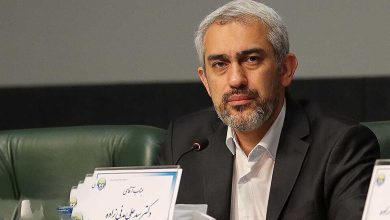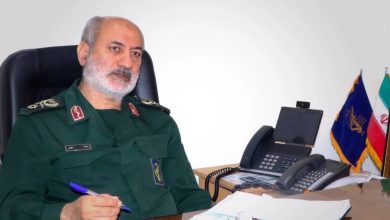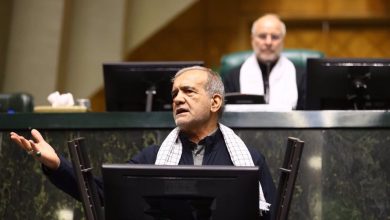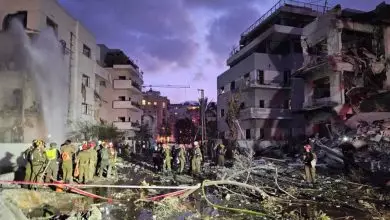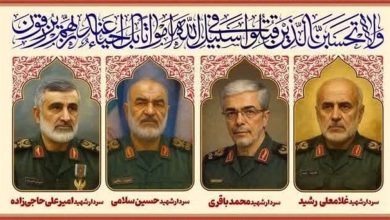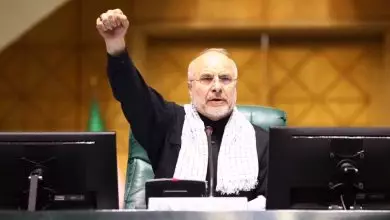Iran’s Uranium Enrichment Declared Non-Negotiable, Key to Nuclear Ambitions, Says AEOI Chief
Iran's top nuclear official has emphasized that uranium enrichment remains a crucial and non-negotiable component of the nation's nuclear industry, reaffirming its importance to the Islamic Republic.
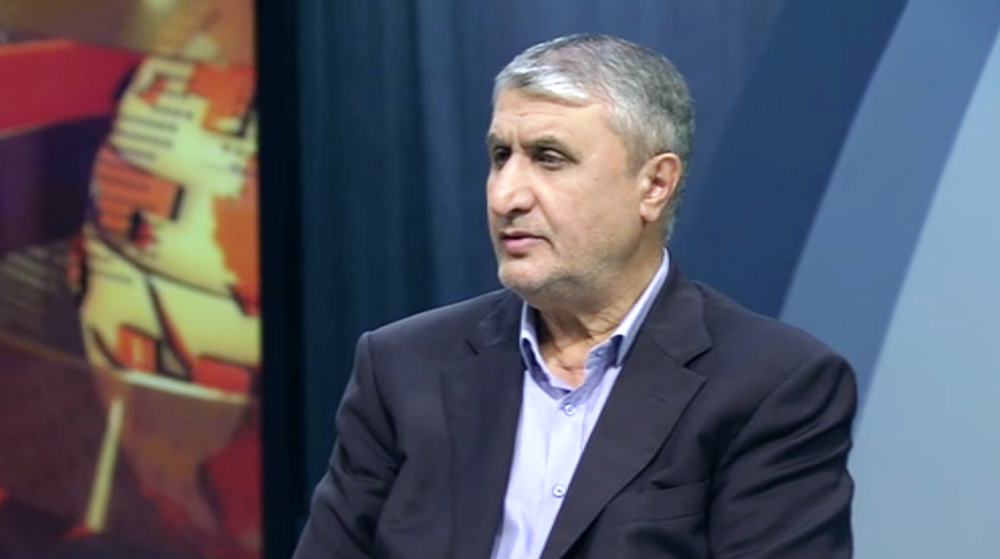
Mohammad Eslami, the head of the Atomic Energy Organization of Iran (AEOI), conveyed his statements in a televised interview, with the details of the discussion being released on Monday.
He emphasized that enrichment serves as the fundamental basis and non-negotiable threshold for the Islamic Republic’s nuclear sector.
An official asserted that Iran holds the unquestionable right to enrich uranium, emphasizing that this prerogative is solely within its own jurisdiction and adheres to its specific framework and requirements, beyond the purview of external parties.
Remarks were directed towards the United States, Israel—widely regarded as Washington’s closest regional ally—and various Western officials, all of whom persist in demanding that Iran lower its enrichment levels to “zero.”
The United States has reiterated its demand numerous times, notably during the ongoing indirect negotiations with Tehran that began in April.
Iranian officials have categorically dismissed any possibility of such an outcome.
Foreign Minister Abbas Araghchi has affirmed the critical importance of uranium enrichment in the nation’s peaceful nuclear endeavors. He emphasized that the Islamic Republic will continue its peaceful enrichment activities irrespective of any agreement with the United States.
Report by IAEA Allegedly Orchestrated by Western Nations and Israel
Eslami has voiced concerns over the International Atomic Energy Agency (IAEA)’s report regarding the Islamic Republic’s nuclear activities, criticizing the document for its political undertones and pointing to Western and Israeli influences in its creation.
He observed that the document had been crafted in accordance with “the same maximum pressure policy” being spearheaded by the United States, alongside the support of its allies, against the nation.
Eslami cited the United States and three European nations—the United Kingdom, France, and Germany—as the parties responsible for exerting pressure on the International Atomic Energy Agency (IAEA) to issue the report, identifying them as Washington’s closest European allies.
He stated that Western pressure had been exerted on the agency, allegedly influenced by the policies of the Zionist regime of Israel.
The agency, facing similar influence and pressure, has unveiled a comprehensive report comprising a blend of accusations and reiterations of past issues.
An official highlighted that the latest report marks a departure from the agency’s previous findings, notably for its extensive length, comprising at least 84 paragraphs.
Iran’s Reaction
Eslami stated that Iran undertakes a comprehensive review and prepares a detailed explanatory report in response each time the International Atomic Energy Agency (IAEA) submits a report to its Board of Governors.
The International Atomic Energy Agency (IAEA) disseminates its response globally via its website, ensuring that all nations have access to the information.
According to an official, Iran’s report has been collaboratively developed by the Atomic Energy Organization of Iran (AEOI) and the Foreign Ministry. The official emphasized that, consistent with previous instances, the nation responded swiftly and without delay.
In a response sent to the agency earlier this month, the two organizations criticized the document, labeling it as politically charged and lacking balance.
Officials dismissed the report’s assertions, labeling them as lacking in credibility and an extension of baseless allegations. They reiterated the nation’s position that its nuclear program remains peaceful and entirely transparent.
The Islamic Republic has called on the International Atomic Energy Agency to uphold neutrality and professionalism in its evaluations.
**Scientific Endeavors**
In a televised interview, Eslami illustrated with a straightforward example: “Imagine a scenario where a nation aims to establish its own electricity industry. It is permitted to build substations and an electrical grid but is prohibited from maintaining any power stations, which are the very source of electricity generation.”
If restrictions are placed on enriching and managing a fuel cycle, it would consequently limit the ability to conduct associated research activities as well.
The deployment of nuclear measuring devices necessitates a specific foundation and framework that is intrinsically linked to the processes of isotope separation and enrichment.
The processes of isotope separation and enrichment are essential for the development of necessary products and the provision of a wide range of services to society.
Eslami stated that the United States has consistently presented the same demands to Iran, a practice that dates back to before the 1979 Islamic Revolution.
At the time, Washington linked Iran’s nuclear activities to the acceptance of prerequisite materials to be produced by a consortium based in France, according to an official. The official further stated that after the consortium’s development, the same American representatives informed Tehran that participation in the European consortium was not an option.
Eslami reported that the development of the necessary products was subsequently entrusted to a collaborative venture between an Iranian and a French company.
Subsequent to the enterprise joining the consortium, Iran encountered restrictions relating to the advancement of its nuclear sector, according to the chief of the Atomic Energy Organization of Iran (AEOI). These restrictions have persisted until now, as noted by the AEOI leader, who remarked that the consortium failed to provide any advantage for the nation at any point.
Eslami noted that the report criticized Iran for being the sole non-nuclear-armed nation enriching uranium to a 60-percent purity level.
The official emphasized that the peaceful enrichment process has consistently occurred under the supervision of the International Atomic Energy Agency (IAEA) and that the nation has taken steps to utilize the resulting uranium for the development of legally authorized products.
Tehran has emphasized the necessity for impartiality among all members of the organization, including Israel. Israel, which has not signed the Nuclear Non-Proliferation Treaty (NPT), maintains a significant nuclear arsenal and frequently issues threats of military action against Iran’s nuclear sites.


